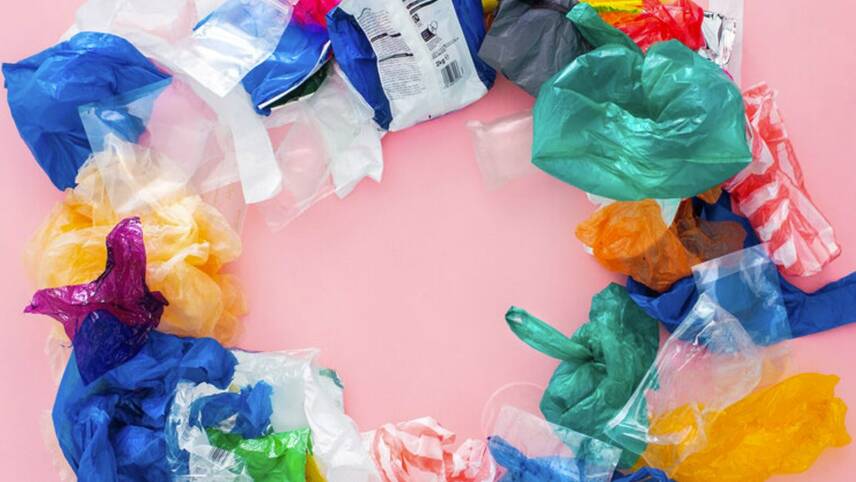Register for free and continue reading
Join our growing army of changemakers and get unlimited access to our premium content

Launched last May with an initial £1m funding pot, the Flexible Plastic Fund is managed by Ecosurety and supported by environmental charity Hubbub. Funding has been contributed, bringing the total to £2.9m, by various public sector bodies and by major consumer goods brands. Brands backing the Fund include Mars UK, Mondelez International, Nestle, PepsiCo, Unilever, KP Snacks, McCain Foods and Ocado.
The aim of the Fund is to create collection and recycling systems for flexible plastics in the UK. Few councils currently collect these plastics at kerbside, as they are challenging practically and economically to recycle using traditional mechanical methods. As such, they are frequently littered or ending up in landfill or incineration. The UK’s flexible plastics recycling rate was just 6% in 2019 and 8% in 2021.
The Fund’s partner organisations have today (19 May) announced plans to pilot flexible plastic packaging collections for UK homes at a scale never before attempted, under a new scheme called ‘Flex Collect’. Collections will begin in Cheltenham this season before being rolled out across a further three local authority areas, and then a further five in the longer term.
In Cheltenham, the Borough Council will be supported by SUEZ, RECOUP and WRAP to deliver the collections. Residents will be asked to place flexible plastic packaging items in with the rest of their dry mixed recycling.
Recycling and packaging industry experts from the Council, SUEZ, RECOUP and WRAP will be joined by others from a range of industry bodies to trial different ways of sorting and recycling these plastics. The pilot will also assess how best to engage households with the change.
Industry bodies providing expertise include the Local Authority Recycling Advisory Committee (LARAC), the National Association of Waste Disposal Officers (NAWDO), the Chartered Institution of Wastes Management (CIWM) and the Environmental Services Association (ESA).
Within three years, the collections will be up and running at a total of nine UK councils. The Fund is currently recruiting the additional eight councils.
Data will be fed back to all initiative partners, as well as the Government’s UK Research and Innovation (UKRI) arm and Department for the Environment, Food and Rural Affairs (Defra). Defra is notably the department responsible for the delivery of the Resources and Waste Strategy, which includes plans for unifying the system for kerbside recycling from homes across England.
RECOUP’s head of policy and infrastructure Steve Morgan said: “A project like this has been needed for some time. With more than 40 local authorities in England already collecting some form of plastic film kerbside, and the aim for all local authorities in England to collect it on the horizon, understanding how to lay the firm foundations for this material to be recycled effectively cannot be understated.”
Bridging the gap
In the absence of nationwide recycling collections for flexible plastics, many of the UK’s major retailers have launched or expanded in-store collections in recent times. Tesco added collection points to all large stores across the UK last year, and customers will likely also see these collection points in branches of Sainsbury’s, the Co-Op and Aldi UK.
However, concerns have been raised about what happens to the plastics that are collected. An investigation by Bloomberg found that plastics collected at a Tesco store in London were sent to the EU and then sent further afield to an “uncertain fate”. Tesco subsequently began carrying out an audit of its waste exporter Eurokey.
A subsequent investigation by E&T found that Sainsbury’s is also using Eurokey to manage its flexible plastic packaging services. Under Sainsbury’s and Eurokey’s partnership, all collected plastics are sent to Poland for recycling.
Eurokey has maintained that the material it manages “is tracked from the point of collection and dispatched by licensed waste carriers until it reaches an accredited reprocessing facility”. “We strive for best practices throughout our business and long-term relationships with our customers and suppliers based on trust and transparency, a Eurokey spokesperson told edie.
Join the conversation: edie’s Circular Economy Week starts on 23 May
Taking place from 23 to 27 May, Circular Economy Week 2022 is edie’s themed week of editorial content and events dedicated to supporting sustainability, energy and resource efficiency professionals in accelerating the transition to an economy free from waste and single-use plastics.
Click here for a full list of what to expect and information on how you can get involved. The main attraction will be our afternoon of online Circular Economy Inspiration Sessions on the afternoon of 26 May, featuring experts from L’Oreal, Toast Ale, EY, Reconomy, Canon and more. Click here for full information and to register for free.


If we are talking about Laminates them forget it!
Monolayers wont even do the job once the “flexibles” even touch any contaminant eg other trash. This seems just like a propaganda. Give details!